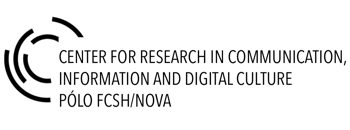CFP: 7th International Conference on e-Democracy, December 14-15, 2017, Athens, Greece | Deadline: 16 June 2017
ICT innovations such as Big Data, Internet of Things, Cloud Computing as well as Intelligent Systems employed in e-Government services raise issues relating to Security, Privacy and Data Protection. Governments want to integrate more services and enhance participation, but they have to convince the users that they can be trusted. At the same time e-Government services need to improve their efficiency and to do so they need to reengineer their back office processes, to support them with intelligent systems, but also improve openness, collaboration and citizen participation. This last point can be hugely enhanced by offering citizens participation in devolved decision making and e-voting facilities for elections. Such services are often quoted as being dependent on political will, but are the systems and services ready? Are they privacy-friendly and secure to withstand attacks and malicious or even terrorist activities in cyberspace? Are they trustworthy to be embraced by the citizens in a digital world that is moving fast and becoming more intelligent? And finally, where should be drawn the “golden line” between anonymity and confidentiality, and accountability and certification?
These are the questions and the focus of the 7th occasion of the International Conference on e-Democracy that will be held in Athens, the cradle of democracy, on December 14-15, 2017. The conference is organized by the Scientific Council for the Information Society, in co-operation with the Hellenic Data Protection Authority and a number of European and Greek Universities, Academia and Research. It is intended, similarly to previous occasions, to provide a forum for presenting and debating the latest developments in the field, from a technical, political, legal and regulatory point of view.
The conference will include keynote addresses, tutorials, panels, Ph.D. colloquia and sessions, workshops, special, regular and poster sessions. All submitted papers to the conference will be peer reviewed, while acceptance will be based on quality, relevance, and originality. Accepted papers will be published in the conference proceedings and selected papers will be invited to participate (after the necessary enhancements) to the evaluation process for inclusion in special issues of peer-reviewed journals.
The working language of the 7th International Conference on “e-Democracy 2017: Privacy-Preserving, Secure, Intelligent e-Government Services” is English. It is possible though, that Greek Law cases on e-Democracy issues can be presented in Greek.
Topics of interest
The topics of interest include, but are not limited to, the following:
e-Democracy and e-Participation
e-Campaigning, e-Politics
Tools for supporting freedom of expression, opinion, assembly and association
e-Justice
e-Voting
Supporting children’s rights online
Information and Consultation Platforms
Collaborative working environments for e-Democracy
Social computing and e-Democracy
Citizen-sourcing and Policy Informatics
Value Co-creation
Citizen centered applications
Smart Cities
e-Government
Open and Big Data for e-Government
Cloud computing for e-Government
Intelligent Systems in e-Government Services
Artificial Intelligence Applications in e-Government
Blockchain Technologies for e-Government
Machine Learning Techniques in e-Government Systems
Robots in e-Government Systems
m-Government
e-Government services and administrative burdens
Business process modeling for e-Government systems
Tools and models for e-Government development
Human rights enhancing technologies
Case studies and European projects
Security, Privacy and Trust
Security, Privacy and Trust in e-Business services
Security, Privacy and Trust in e-Government services
Security, Privacy and Trust in Online Social Network Services
Cloud Computing Security and Privacy
CyberPhysical Systems Security
Identity Management, Identity Theft and Trust Management
Information Audit and Trust
Intelligent Systems for Data Protection or/and Security
Artificial Intelligence for Security or/and Data Protection
Machine Learning Techniques in Security or/and Data Protection
Trust and Reputation in Digital Environments
Cyber attacks and Advances on Network Security
Cryptographic Technologies
Anonymisation Methodologies and Best Practices
Privacy by Design and Default Methodologies
Tracking Technologies and Do-Not-Track Systems
Privacy Impact Assessment Methodologies
Privacy Enhancing Location and Mobility Management
Security and Privacy Audit, Risk and Governance
Security and Data Protection Education
Tradeoffs between security and efficiency, usability, reliability and cost
Biometrics and privacy
e-Crime, e-Fraud and Digital Forensics
Cyber Crime Detection and Prevention
Internet Fraud, Cyber War
Computer Forensics and Anti-forensics
Social, legal and ethical issues
Transparency and Accountability in Data Protection
Ethics in Digital Societies
Surveillance Technologies and Legal Implications
Freedom of Expression and Privacy
Freedom of Information and Privacy
Social factors of collaborative creativity
Right to anonymity vs accountability
Important Dates
Full paper submission deadline: 16 June 2017
Notification of decision: 3 September 2017
Camera-ready deadline: 17 September 2017
Instructions for Authors
Submitted papers must not substantially overlap with papers that have been published or that have been simultaneously submitted to a journal or a conference with proceedings. Papers should be at most 15 pages long, including the bibliography and well-marked appendices, and should follow the LNCS style (http://www.springer.com/gp/computer-science/lncs/conference-proceedings-guidelines). Submissions are to be made to the submission web site at https://easychair.org/conferences/?conf=edemocracy17. Only pdf files will be accepted. Submissions not meeting these guidelines risk rejection without consideration of their merits. Papers must be received by the deadline of 16 June 2017 (11:59 p.m. American Samoa time). Authors of accepted papers must guarantee that their papers will be presented at the conference. Conference proceedings will be published in the Springer’s Communications in Computer and Information Science (CCIS) series (http://www.springer.com/series/7899) .
The authors of selected accepted papers will be invited to extend their work for further publication in special issues of well known Scientific Journals.
e-Democracy 2017: Privacy-Preserving, Secure, Intelligente-Government Services
More info: http://www.edemocracy2017.eu
